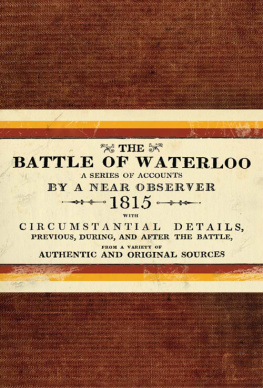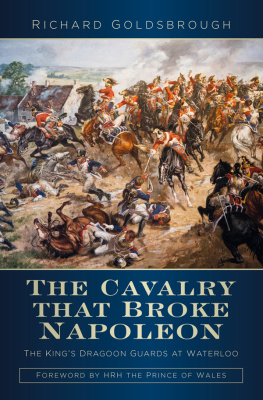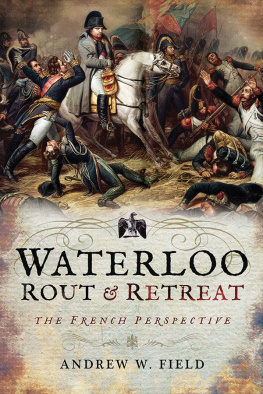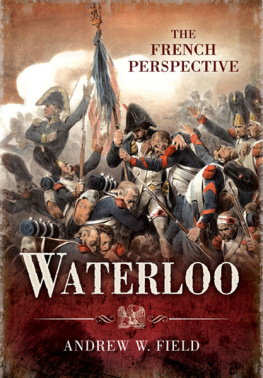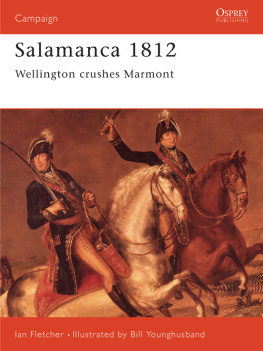First published in Great Britain in 2016 by
PEN AND SWORD MILITARY
an imprint of
Pen and Sword Books Ltd
47 Church Street
Barnsley
South Yorkshire S70 2AS
Copyright John Morewood, 2016
ISBN: 978 1 47386 804 5
PDF ISBN: 978 1 47386 807 6
EPUB ISBN: 978 1 47386 806 9
PRC ISBN: 978 1 47386 805 2
The right of John Morewood to be identified as the author of this work has been asserted by him in accordance with the Copyright, Designs and Patents Act 1988.
A CIP record for this book is available from the British Library.
All rights reserved. No part of this book may be reproduced or transmitted in any form or by any means, electronic or mechanical including photocopying, recording or by any information storage and retrieval system, without permission from the Publisher in writing.
Printed and bound in England by
CPI Group (UK) Ltd, Croydon, CR0 4YY
Typeset in Times by CHIC GRAPHICS
Pen & Sword Books Ltd incorporates the imprints of
Archaeology, Atlas, Aviation, Battleground, Discovery, Family History, History, Maritime, Military, Naval, Politics, Railways, Select, Social History, Transport, True Crime, Claymore Press, Frontline Books, Leo Cooper, Praetorian Press, Remember When, Seaforth Publishing and Wharncliffe.
For a complete list of Pen and Sword titles please contact
Pen and Sword Books Limited
47 Church Street, Barnsley, South Yorkshire, S70 2AS, England
E-mail:
Website: www.pen-and-sword.co.uk
Preface
Major General Sir William Ponsonby achieved immortality by leading the charge of the Union Brigade at the Battle of Waterloo. This was the cavalry charge that wrecked what Napoleon had intended to be the decisive attack to defeat Wellington. In the space of twenty minutes the French 1st Corps of General Comte dErlon broke through Wellingtons line, tasted victory and then suffered utter defeat at the hands of Sir Williams less than 1,000-strong Union Brigade, comprising English, Irish and Scottish heavy cavalry regiments. Sir William chose the timing of the charge and personally led the three regiments to success. However, he was killed in the overwhelming French counter-attack, and the next day the Duke of Wellington added a postscript to his dispatch to the Secretary of State for War:
Since writing the above, I have received a report that Major General the Hon Sir William Ponsonby is killed; and in announcing this intelligence to your Lordship, I have to add the expression of my grief for the fate of an officer who has already rendered very brilliant and important services and who was an ornament to his profession.
This was a more glowing encomium than Wellington was prepared to give Sir Thomas Picton, a much more famous commander today, who had also been killed at Waterloo. Sir William, like Sir Thomas Picton, had served Wellington well during the Peninsular War. Sir John Fortescue, the historian of the British Army, regarded Sir William as the best cavalry brigade commander after Bock and Arentschildt (and certainly on a par with Le Marchant and Vivian). During the Peninsular War Sir William had led his regiment in the decisive cavalry charge at the Battle of Salamanca and then led a heavy cavalry brigade for the remainder of the war, earning a reputation for bravery and professionalism.
Over time, however, Sir Williams contribution was forgotten. Historians, who should have known better, criticised him for allowing the Union Brigades charge to get out of control and quoted horrendous losses, ignoring the fact that after Sir Williams death the Union Brigade had to fight on for another seven hours. His role in the Peninsular War was also ignored. No book has ever been written about him and it is time to set the record straight.
Sir William was not just a very capable cavalry commander. He also belonged to one of the most fascinating and influential families in the land. His uncle was the leader of the Opposition in the House of Commons. His brothers would reach high positions in the Church, the Diplomatic Corps and the Treasury. His sister was married to Earl Grey, who would later become Prime Minister. His second cousin was the infamous Lady Caroline Lamb, whose love affair with the poet Byron was the talk of London. His elder brother had been the preferred lover of the most popular courtesan of the day.
I first came across Sir William many years ago. I grew up in Cumbria where the Ponsonby family originated. My parents, particularly my father, encouraged me in my love of history and this included old Cumbrian families. One day I went into Whitehaven Library and there was a copy of Sir John Ponsonbys work on the Ponsonby family. Id always been fascinated by the Napoleonic Wars and there in Sir Johns book was a chapter headed Waterloo General. That is where I came across Sir William Ponsonby for the first time. I later encountered him again in the wonderful film Waterloo, in which he is played by Michael Wilding.
It was not until 1995 that I wrote an article on Sir William, which was published in the Journal of the Friends of the Waterloo Committee (now the Waterloo Association), of which I am now the Secretary. And then I did nothing else. Work got busier and life took over. But I had in the back of my mind that I wanted to do something more to tease out the whole story. It was no longer just about a tenuous Cumbrian link to the Battle of Waterloo. I wanted to understand how someone who had such a good professional reputation during the Peninsular War, could have his reputation attacked and shot to pieces by some Waterloo historians. And then there was the tantalising question: how did Sir William actually die at Waterloo? Was he shot, or killed by French lancers? Was he on his own, or with some of his troops? Was he attempting to escape back to the Allied lines, or was he trying to do something else? I was determined to find out.
As you get older you begin to wonder what your legacy will be. I always had the desire to dedicate a book to my father and hand it to him as a thank you. It always seemed there would be plenty of time to do this. And then suddenly, catastrophically, Dad died in November 2009. This book has become a memorial to him, if that makes any sense. I finally started writing it in the dreary winter of 201314, on my fortnightly weekend journeys to Cumbria to see my widowed Mum. Now Mum has died and so this book is for both of them, and Sir William of course. Perhaps it may be my legacy too.
I couldnt have written this book without encouragement, help and support from many people. First of all, grateful thanks as always to the wonderful historian and battlefield guide Ian Fletcher, who encouraged me to write the book in the first place, and to another great historian and editor of first-hand accounts of Waterloo, Gareth Glover for providing me with such helpful advice and encouragement. Gareth has painstakingly reviewed the book twice. Also grateful thanks to Mick Crumplin of the Waterloo Association, to Alan Henshaw of the Dragoon Guards Museum at York, Robert Pocock and Alasdair White for helping me find the position of the wood near which Sir William died and most especially to members of the Ponsonby family Laura Ponsonby, Lord Frederick Ponsonby and Lord Rupert de Mauley who have been unstinting in their support. I am also very grateful to Pierre de Wit, who brought to my attention firstly Colonel Bros sketch of how he deployed the lancers to attack the Scots Greys and secondly Colonel Bests account of his finding Sir Williams body on the morning after Waterloo. Particularly, as this is my first book, I am very grateful for the support and advice of Rupert Harding and his colleagues at Pen and Sword. Finally a special mention to Elizabeth Phipps of Haile Hall, the original home of the family in Cumbria, and to the staff of the various libraries I have used; in particular the Borthwick Institute at York, the British Library, Durham University Library and the National Army Museum. I should also mention Andrew Field, whose book


